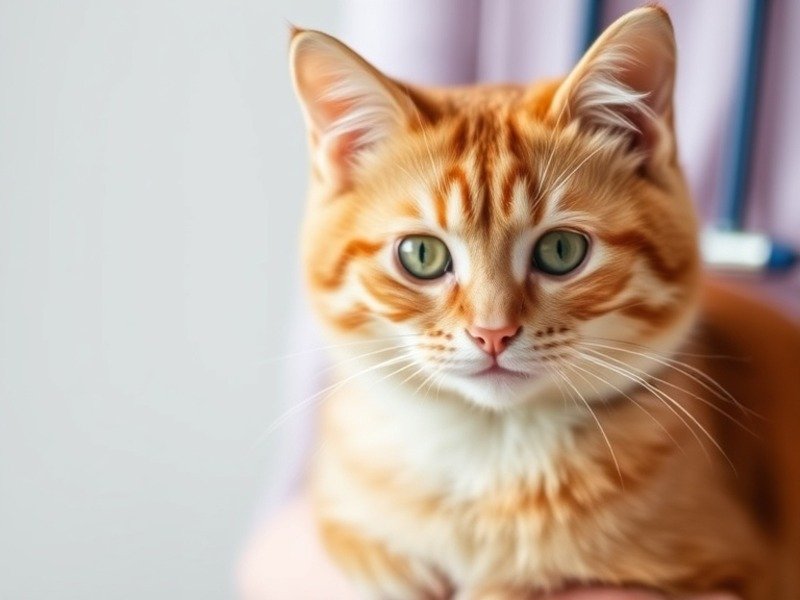How often should a cat visit the vet, Just like humans, cats need regular checkups to identify potential health issues early on, Every cat owner wants to see their furry friend happy, healthy, and full of energy. But how do you ensure that your cat is getting the best possible care? Regular veterinary checkups are a crucial component of a comprehensive health plan for your cat.
The Importance of Regular Veterinary Care
How often should a cat visit the vet, Just like humans, cats need regular checkups to identify potential health issues early on, before they become serious. Early detection of disease can significantly improve treatment outcomes and increase the chances of a full recovery.
How Often Should A Cat Visit the Vet?
The frequency of veterinary checkups depends on your cat’s age and health status. Here’s a general guideline for most healthy cats:
- Kittens: Kittens require frequent veterinary checkups during their first year of life. They should see the vet for an initial checkup within 72 hours of birth, followed by booster vaccinations at 8, 12, and 16 weeks of age.
- Adult Cats (1-7 years old): Once your cat has reached adulthood, they should have an annual checkup. During the annual checkup, the veterinarian will perform a thorough physical exam, assess your cat’s weight and body condition, and administer any necessary vaccinations.
- Senior Cats (7+ years old): Senior cats should have veterinary checkups every 6 months. As cats age, they are more prone to health issues, so more frequent checkups are needed to identify problems early on.
A Case Study: Whiskers’ Early Detection Story
Whiskers, a 7-year-old Maine Coon, had always been a healthy and active cat. His owner, David, was meticulous about bringing him for annual checkups. During Whiskers’ most recent checkup, the veterinarian noticed that Whiskers had gained a few pounds and his blood pressure was slightly elevated.
“We were surprised,” David says. “Whiskers seemed to be in perfect health, but the veterinarian explained that even a few pounds of weight gain could put extra stress on his joints and his heart.”
What Happens During a Veterinary Checkup?
During a veterinary checkup, the veterinarian will perform a comprehensive physical exam, which includes:
- General Examination: The veterinarian will assess your cat’s overall appearance, looking for any signs of illness, such as lethargy, weight loss, or changes in appetite.
- Temperature: The veterinarian will check your cat’s temperature to ensure it’s within a normal range. A high temperature could indicate an infection.
- Pulse and Respiration: The veterinarian will check your cat’s heart rate and breathing rate to make sure they are normal.
- Eyes, Ears, and Nose: The veterinarian will examine your cat’s eyes, ears, and nose for any signs of infection, discharge, or abnormalities.
- Teeth and Gums: The veterinarian will examine your cat’s teeth and gums for signs of dental disease.
- Palpation (Feeling): The veterinarian will feel your cat’s abdomen and lymph nodes for any abnormalities.
- Auscultation (Listening): The veterinarian will listen to your cat’s heart and lungs with a stethoscope to check for any abnormal sounds.
Additional Testing:
Depending on your cat’s age and health status, the veterinarian might recommend additional tests, such as:
- Bloodwork: Blood tests can help identify various medical conditions, including infections, kidney disease, liver disease, and diabetes.
- Urinalysis: A urinalysis can detect urinary tract infections, kidney problems, and other conditions.
- Fecal Exam: A fecal exam can detect intestinal parasites.
- Radiographs (X-rays): X-rays can be used to examine bones, organs, and other structures, helping to diagnose a variety of conditions.
- Ultrasound: Ultrasound uses sound waves to create images of internal organs, providing a detailed view of the organs and surrounding structures.
Whiskers’ Follow-Up Care
Based on Whiskers’ bloodwork results and elevated blood pressure, the veterinarian recommended that he start a weight loss program and monitored him closely. The veterinarian also gave David some helpful tips for managing Whiskers’ weight and maintaining his health.
Conclusion
Regular veterinary checkups are an essential part of keeping your cat healthy and happy. Even if your cat seems perfectly healthy, it’s crucial to schedule annual checkups for adult cats and semi-annual checkups for senior cats. Early detection of disease is key to ensuring the best possible outcome for your feline companion. By following a regular checkup schedule and partnering with your veterinarian, you can help your cat live a long, healthy, and fulfilling life.

Leave a Reply